Red Cross buses leave before dawn. The entire trip takes approximately twelve hours.
The road to reunion: For these families this is all they have
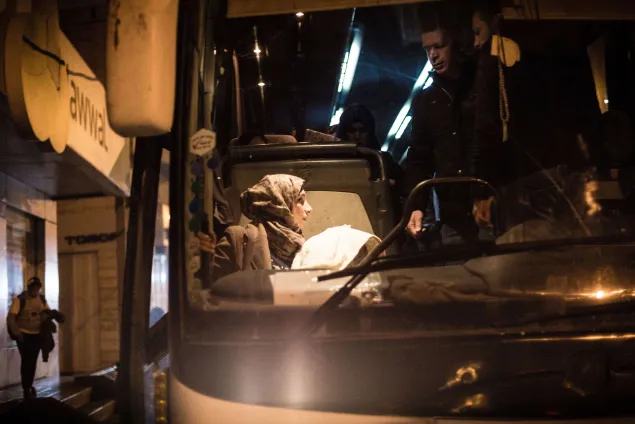
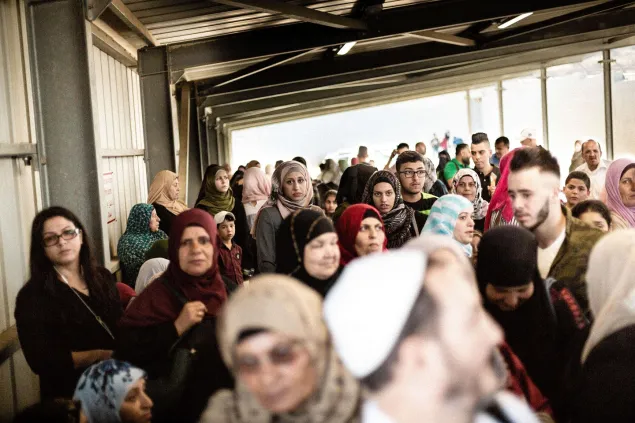
Relatives of detainees at a checkpoint waiting to cross. Palestinians need permits to enter Israel. On busy days, when hundreds of people go on a prison visit, crossing may take several hours.
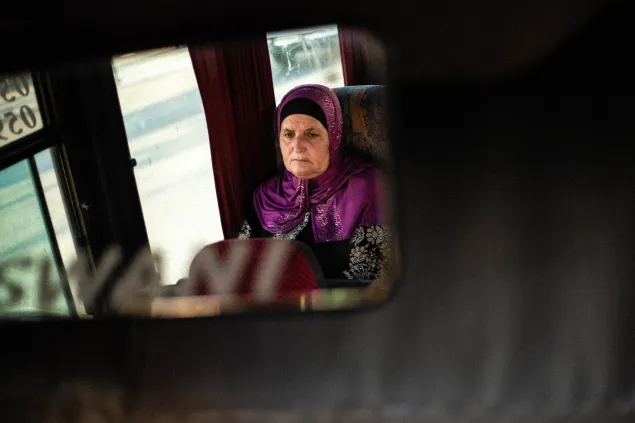
Palestinian bus with families of detainees leaving Ramallah.
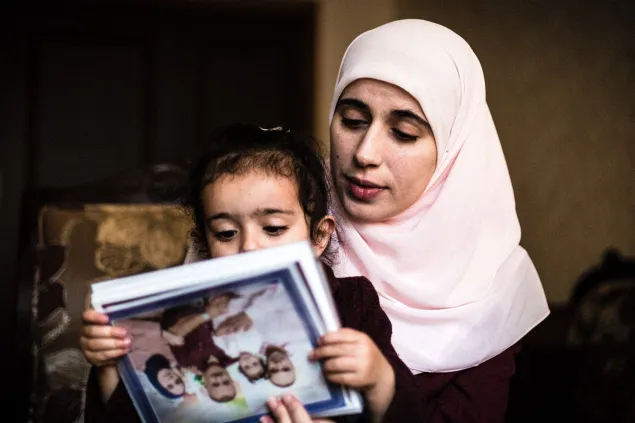
“I brought our newborn daughter on one of the visits. I showed her
to my husband through the glass. It was the only time in my life I saw him cry.”
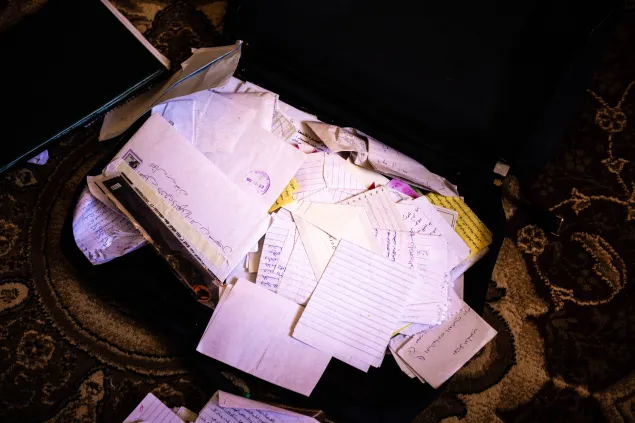
“I keep all his clothes. His letters. An old blanket.”
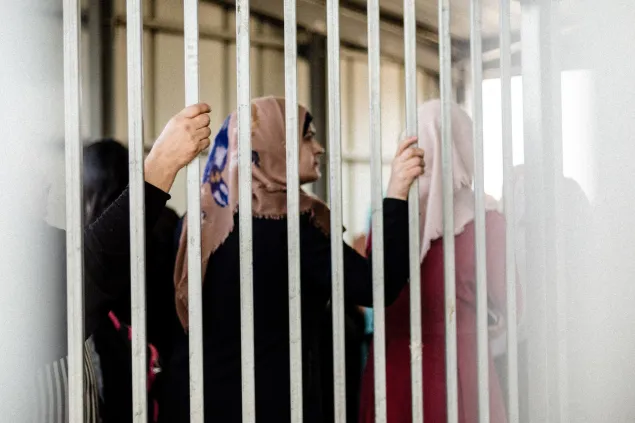
Relatives of Palestinians detained in Israel wait at a checkpoint to cross.
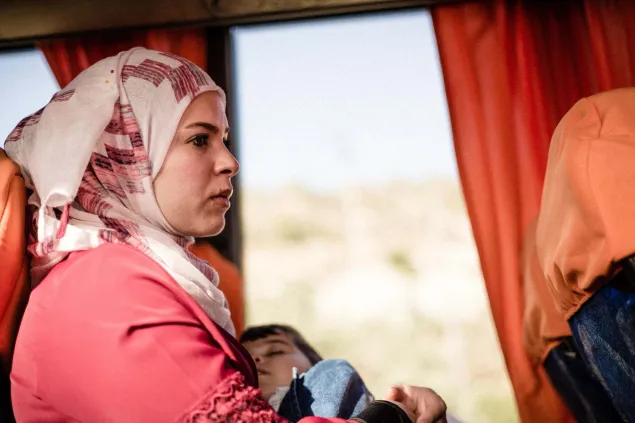
“He is the most important person in my life. I would never miss an opportunity to see him. Even if it is for 45 minutes. Even five minutes.”
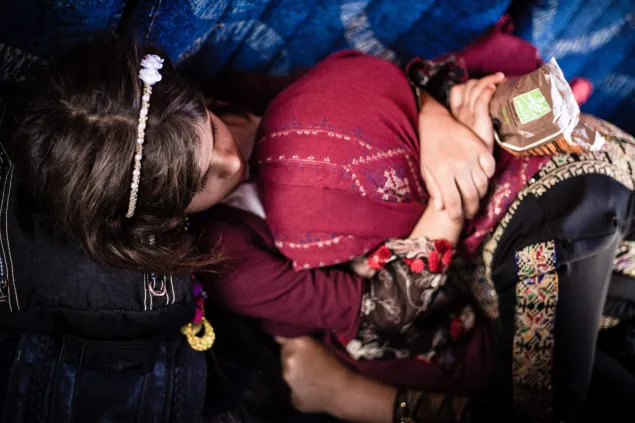
Families of detainees on a bus to a prison.
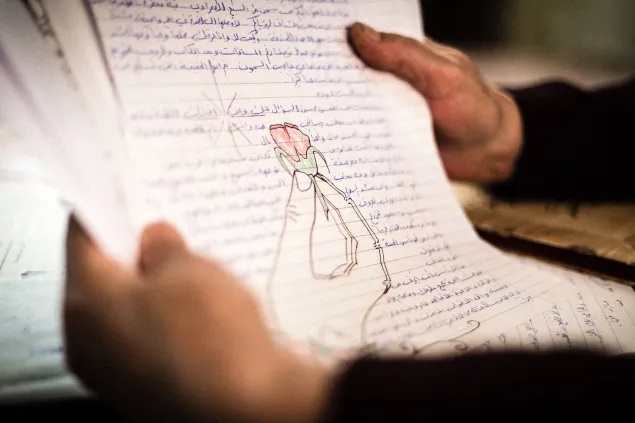
A letter a detainee wrote to his mother.
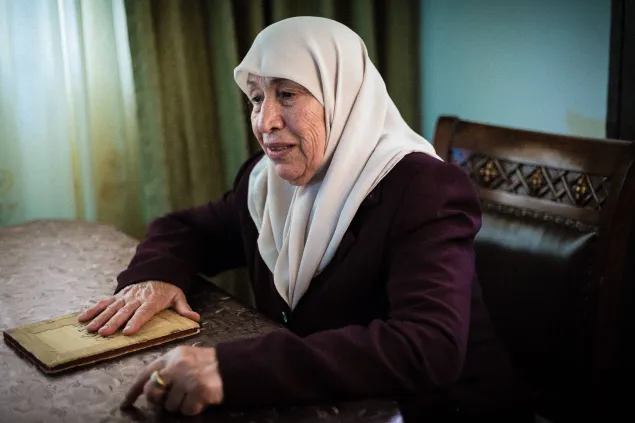
“The night before I cannot sleep. I get nervous and distracted. I always fear I will miss the bus or forget something.”
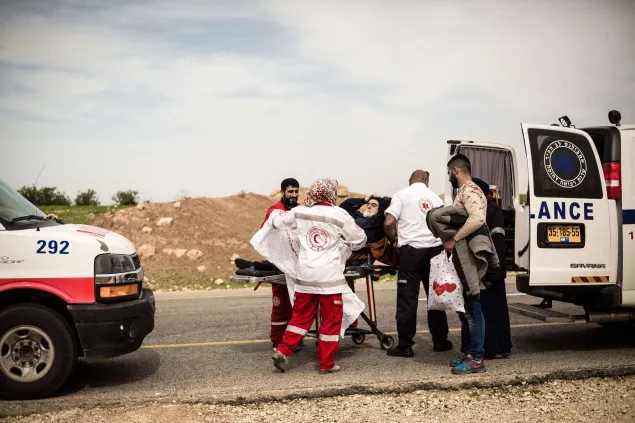
“Every time I go to see my son, I can’t help thinking this time may be the last.” Special ambulance transfers are organized for detainees’ relatives who are too sick to travel by bus.
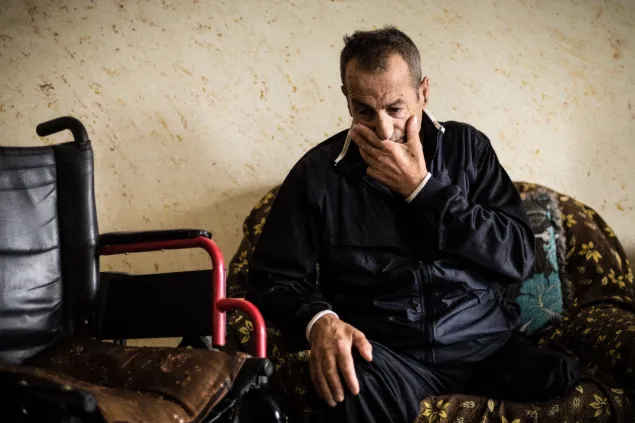
The long trip is particularly difficult for people with disabilities. They need special transport to be able to visit their detained relatives.
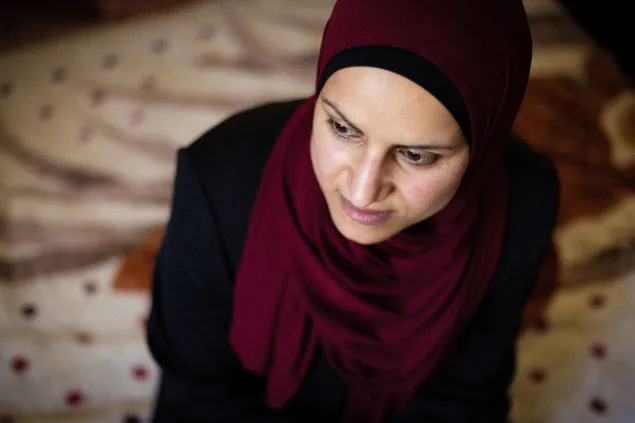
“I long for that day and feel empty afterwards. When the phone gets cut, I knock on the window. I can’t explain the feeling.”
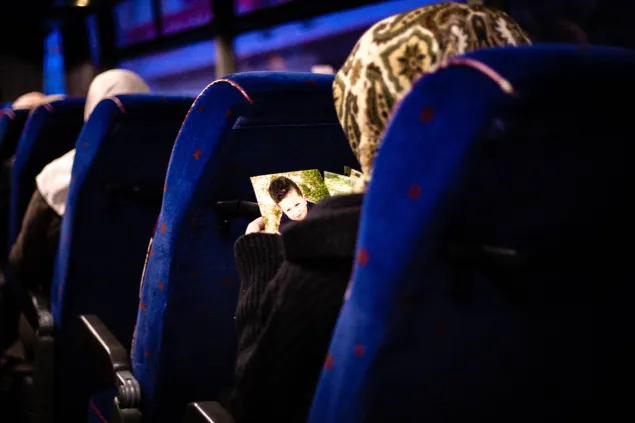
A woman taking family photographs to her detained husband.
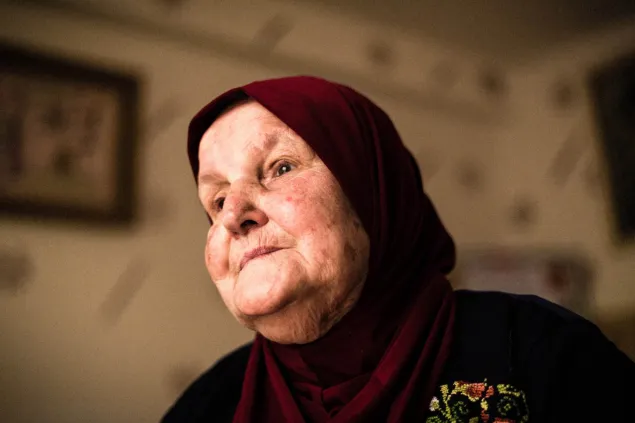
“When I started losing my eyesight, I didn’t want to tell my son. I didn’t want him to worry. I just pretended I could still see him when I went on prison visits.”
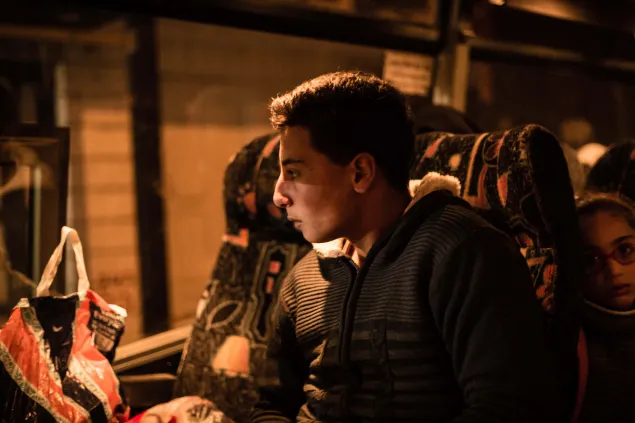
A bus leaving Hebron before dawn.
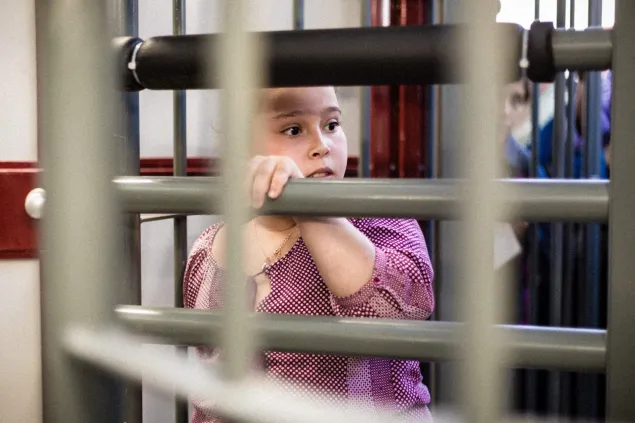
Families of Palestinian detainees crossing a checkpoint.
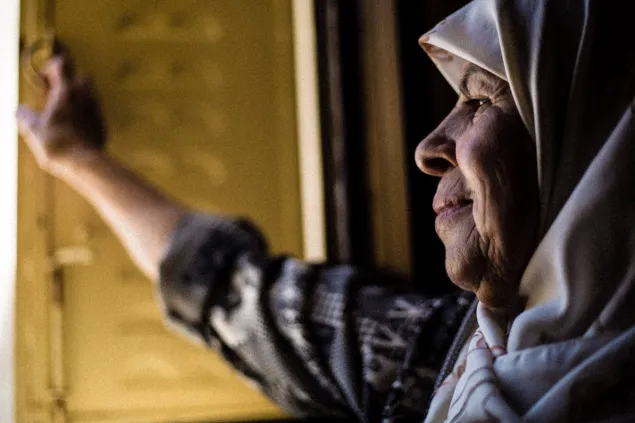
“Every day, I go into my son’s old room and open the window.”
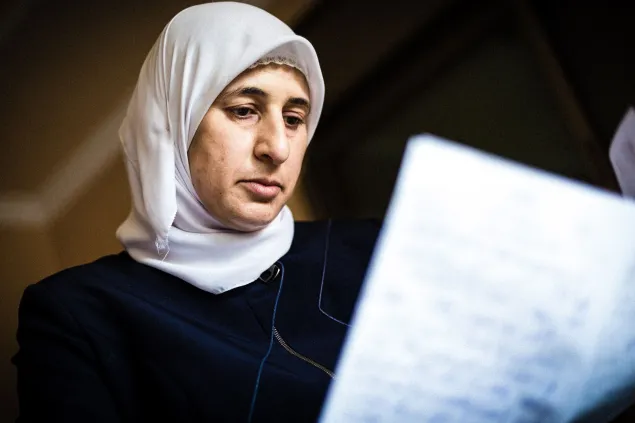
“I try to squeeze so many things into the 45 minutes. I tell him everything that happened, how each of the kids is doing at school.”
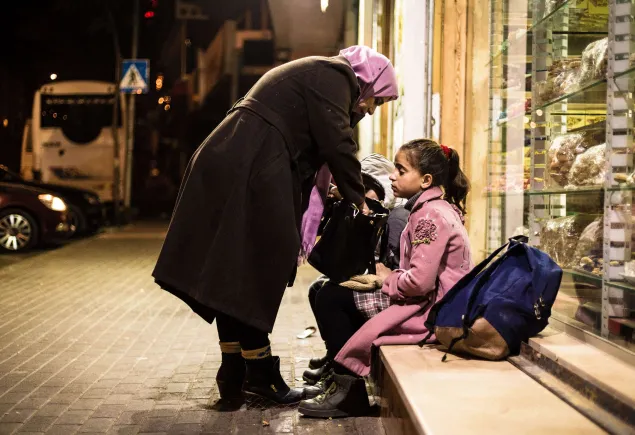
Relatives of detainees getting ready to take the bus to prison.
Once a month she wakes up long before dawn. On those nights she hardly falls asleep anyway, constantly going through an imaginary checklist inside her head: permit, ID, money. She knows what she has to take, what she has to do, but emotions take over and she always fears she may forget something. Forgetting would mean missing the visit. She would not forgive herself if this happened. Those forty-five minutes are precious. She longs for them and dreads them at the same time.
It is still dark when she arrives to the street where buses are waiting. Many familiar faces and a couple of new ones are in the crowd. Bus drivers pour steaming coffee into small paper cups, while passengers buy food. An exhausting twelve-hour trip is ahead of them: two back to back buses, one Palestinian, one Israeli, hours of waiting at the checkpoint, a rigorous search before entering the prison.
On the way, she repeats to herself all the things she has to remember to tell him on the phone through the glass separation: family news, neighbourhood gossip, how much they miss him. Then, there will be another month of waiting. The absence is a gaping hole she tries to fill with memories, old clothes, books, letters, photographs.
Every year, over 100,000 people from the West Bank, Gaza and East Jerusalem take Red Cross buses to visit family members detained in Israel. Behind numbers there are people, and behind every person there is a story of what it means to live apart from someone you love.
Maintaining contact with family members is a fundamental humanitarian need and a right granted to detainees by International Humanitarian Law. For fifty years, the International Committee of the Red Cross (ICRC) has been organizing visits for families of Palestinian detainees held in Israeli detention facilities through its family visit program. We facilitate permits, organize transportation, and help detainees and their relatives exchange family news via Red Cross messages. The ICRC facilitated more than 3.5 million family visits since 1969.



